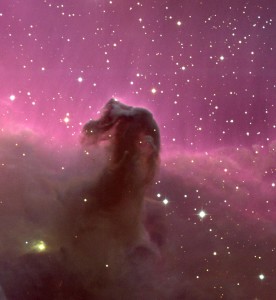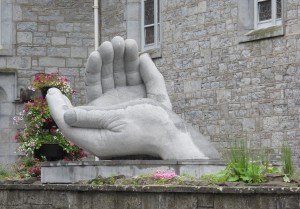 Those of us who were alive (and old enough to be aware) when John Kennedy was elected President, were born into a pre-space flight world. Space flight was one of Kennedy’s agendas as the nation’s executive, and his youth, verve, and drive were part of what fueled us and propelled us to the moon and beyond.
Those of us who were alive (and old enough to be aware) when John Kennedy was elected President, were born into a pre-space flight world. Space flight was one of Kennedy’s agendas as the nation’s executive, and his youth, verve, and drive were part of what fueled us and propelled us to the moon and beyond.
Last Tuesday, I flew into Logan airport from Denver for a visit with my father. It was almost midnight and off-loading the luggage from the plane at that hour is almost always a stately event, so I took my time getting to the baggage carousel… I was able to meander past the display about JFK and the space program, and the myriad unexpected gifts it has dropped into our life on earth – things like the mylar in space blankets which has saved the life of many a hypothermia victim.
By coincidence, Thursday (January 28) was the 30th anniversary of the Space Shuttle Challenger explosion. Photos of the seven astronauts who lost their lives 70 seconds into that take-off were run in newspapers and on television news programs all day long. Those of us who are New England born and bred, feel particularly close to Christa MacAuliffe, the Concord (New Hampshire) schoolteacher whose enthusiasm for teaching led her to be chosen from over 11,000 candidates to be the first teacher in space.
McAuliffe was a teacher at the Concord (NH) high school when she died at 37.
On Thursday, one of the news stations in Boston ran an interview with one of her many students who, inspired by her teaching, went on to become teachers themselves. Over and over the conversation came back to McAuliffe’s passion for including everyone in the circle of her curiosity and excitement about learning. The young teacher remarked more than once on McAuliffe’s ability to reach even the most disengaged student ‘at the back of the room’.
“She didn’t just ignore the kids who sat in the back, she drew them into every class.” “She encouraged all of us.” “She brought out the best in everyone.” “She could get everyone to engage in the process.” “We all loved learning from her because she cared about all of us.” “She brought out the best in everyone.” “She wasn’t willing to ask questions of, or teach to, just the most interested or verbal students — she knew how to reach each one of us.” And again, as had been said before more than once: “She looked for our best and she brought out the best in everyone.”
The unfolding Presidential soap opera is about to descend on New Hampshire for the primaries and I wonder at the huge gap between McAuliffe’s legacy and the narrow, exclusionary rhetoric of the field of candidates who claim to want to lead our extraordinarily diverse country. Thirty years ago, the country was every bit as diverse, but the civic conversation was considerably more civil.
I am not talking about some golden idealistic “old days”…we certainly had our problems (many of which linger or have reared themselves again in a virulent retrenchment). But the pulsating fear and violence directed against the ‘other’ was less wide-spread. There was an energy and hope that seem to be missing from the current crop of candidates.
 Fear can become a pandemic every bit as life-threatening as H2N2 or Ebola or Bubonic Plague or Influenza. When we have seven Presidential candidates on one stage and all they can talk about is fear, hopelessness, what is wrong, what is wrong-er, what is currently okay but will probably go wrong, who is to blame, how frightening and dangerous our neighbors are, and how horrible the world has become, we have a bigger problem than trying to make a choice between two, five, nine, or eleven ‘lesser evils.’
Fear can become a pandemic every bit as life-threatening as H2N2 or Ebola or Bubonic Plague or Influenza. When we have seven Presidential candidates on one stage and all they can talk about is fear, hopelessness, what is wrong, what is wrong-er, what is currently okay but will probably go wrong, who is to blame, how frightening and dangerous our neighbors are, and how horrible the world has become, we have a bigger problem than trying to make a choice between two, five, nine, or eleven ‘lesser evils.’
I have not heard a single positive vision. No one is offering hope and, in spite of Sarah Palin’s continued scorn, it is the responsibility of leaders to offer hope. That doesn’t mean we cannot be honest about the problems, but if there truly is no hope at all, why would any of us want to continue to exist?
Equally life-threatening is the fact that almost everyone on that stage is trying to exclude the people in the back of the room rather than drawing them into the conversation and seeking their best wisdom. In fact, most of the candidates would like to get those folks not only out of the room, but out of the school, the town, the state, the country, and – if you pay attention to what is really being said – wipe them off the face of the earth.
Christa McAuliffe offered us a completely different vision: one of care for those who might be on the edge, who might slip off the radar screen, lose their opportunity to realize their potential. She extended an extravagant welcome to every person she taught. She invited them to be part of the circle.
In spite of our corporate ‘memory’, we citizens of the United States did not always extend extravagant welcome to the circle. We did not, for instance, always receive immigrants with open arms. Sending Jewish children back to Europe where they were exterminated in the concentration camps of WWII was not one of our finer moments as a country. Incarcerating our Japanese-American citizens (men, women and children) was inexcusable. Signs in Boston businesses 150 years ago that read, ‘No Irish need apply’ were every bit as damning as the segregated lunch counters of the south. But over the generations, we have managed to incorporate many folks who started at ‘the back of the room’…and we have been blessed by our diversity; indeed, the world has been blessed by our diversity.
We need to remember that.
 We need more welcome, not less. We need more respect for different points of view, not less. We need more ways to help people stay healthy or return to health, not fewer. We need more ways of lending a helping hand, more compassion, more hope. We don’t need to divide people into ever smaller and more isolated ghettos (physical, emotional, cultural), but to get everyone in the room talking. No ethnic group, no religious group, no national group, no age group, no gender grouping was or ever will be served better by more judgment, more exclusion, more denigration, more prejudice.
We need more welcome, not less. We need more respect for different points of view, not less. We need more ways to help people stay healthy or return to health, not fewer. We need more ways of lending a helping hand, more compassion, more hope. We don’t need to divide people into ever smaller and more isolated ghettos (physical, emotional, cultural), but to get everyone in the room talking. No ethnic group, no religious group, no national group, no age group, no gender grouping was or ever will be served better by more judgment, more exclusion, more denigration, more prejudice.
We can let Christa McAuliffe’s memory be just a sound byte on the anniversary of her death…or we can lift it up into our corporate memory and allow its life-giving and life-transforming potential to remind us that there is hope and we can choose kindness and mutual respect as easily as we can choose prejudice, anger, demeaning rhetoric, and fear.
Please join me in choosing life.
–Andrea
Text © 2016, Andrea La Sonde Anastos
Photo of the Horsehead Nebula © Nigel Sharp (2009) NOAO
Other photos © 2011, Immram Chara, LLC
NOTE: If you haven’t seen my Facebook page (Immram Chara), please check it out. I post there almost every day. If you are willing (and haven’t already), please Like the page…and pass it along to friends. Thank you.
Andrea,
What inspired and refreshing thoughts! I would encourage you to think about offering this to the Denver Post Editorial page. Seriously.
Thank you for sharing your thoughts and reminding me to not give up hope.
Thank you for taking the time to read my words and respond.
I truly appreciate the women and men and children who embody hope for the rest of us…and I hope to learn from them that hope is a choice as well as a feeling.
–Andrea
I agree with Vickers, Andrea. This one should go on the editorial page. I think many people would agree. It’s a message that needs to be heard!
Molly Ross
I suspect it is already out of date in the news cycle…but I appreciate that you let me know that it had some meaning for you. I hope it also touched others. I am saddened that so few are willing to offer vision. There is so much good for which to work, in which to share, toward which to look. WE make our world and we can make it depressing or life-giving. Our choice.
–Andrea